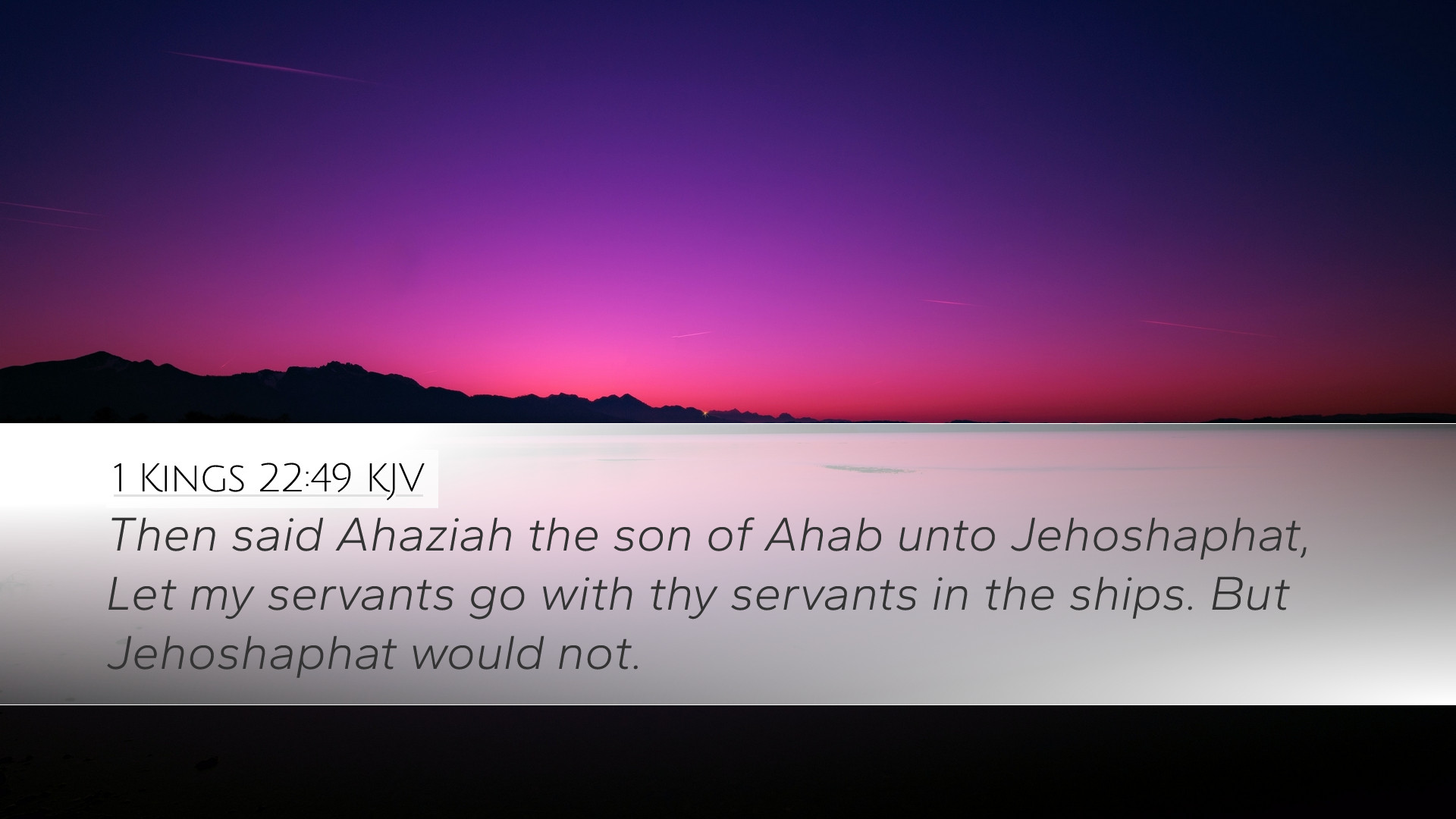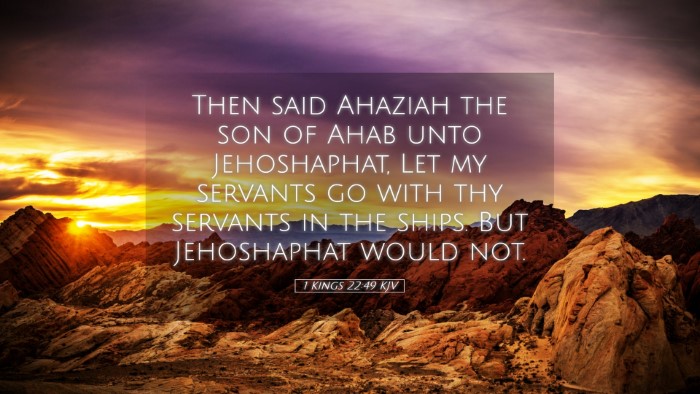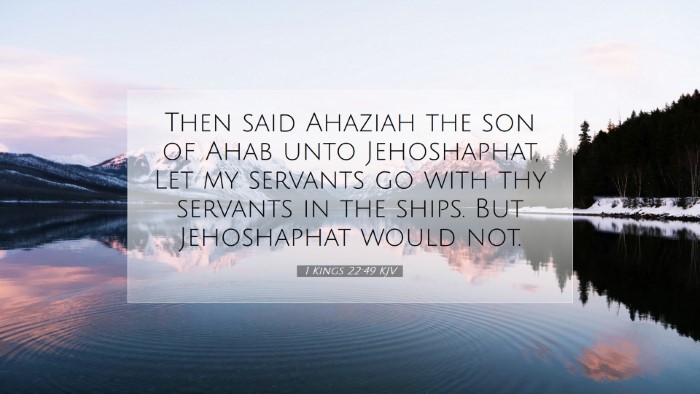Commentary on 1 Kings 22:49
Verse Text: “And Jehoshaphat made ships of Tarshish to go to Ophir for gold: but they went not; for the ships were broken at Eziongeber.”
Contextual Overview
This verse falls within a narrative that outlines the political and military alliances of Israel and Judah during the reigns of King Ahab of Israel and King Jehoshaphat of Judah. The story recounts the events leading up to the battle against Ramoth-Gilead, showcasing the theological and historical interplay between the two kingdoms.
Thematic Analysis
The actions of Jehoshaphat in this verse illustrate several key themes:
- Alliance and Cooperation: This verse highlights King Jehoshaphat's ambition to strengthen his kingdom through trade and partnership with Israel.
- Failure of Human Efforts: The ultimate failure of Jehoshaphat's ships serves as a reflection of the futility in relying solely on human endeavors absent divine favor.
- Divine Intervention: The breaking of the ships can be interpreted as an act of God, demonstrating His sovereignty over human plans.
Commentary Insights
Matthew Henry's Commentary: Henry reflects on the ambition of Jehoshaphat in seeking riches from distant lands, recognizing it as a noble pursuit but cautioning against the pride and self-sufficiency that often accompany such endeavors. He notes that although Jehoshaphat was a godly king, his alliance with Ahab, a king known for idol worship, was spiritually perilous. The failure of the ships symbolizes God's displeasure and serves as a divine warning against compromising faith for political gain.
Albert Barnes' Notes: Barnes elaborates on the implications of the phrase "made ships of Tarshish," which indicates that Jehoshaphat sought to emulate the maritime trade practices of other wealthy nations. He posits that the fatal accident of the ships may indicate not just providential interference but also the consequences of Jehoshaphat's naiveté—his failure to consult God before embarking on this venture. Barnes emphasizes the importance of divine guidance in all matters, especially in political alliances.
Adam Clarke's Commentary: Clarke provides a historical and geographical context by discussing the significance of Tarshish and Ophir as sources of wealth during that period. He points out that the name "Eziongeber" finds its roots in historical relevance, being close to the Red Sea, hence a strategic point for maritime activities. Clarke notes the contrast between Jehoshaphat's intentions and the eventual outcome, indicating that despite good intentions, human plans can lead to failure without God’s blessing. Additionally, Clarke highlights the consequences of associating with corrupt entities, a theme that resonates throughout the scriptures.
Theological Reflections
This verse serves as a reminder to modern readers regarding the dangers of alliances and engagements in enterprises that do not seek divine approval. It challenges leaders and individuals alike to reflect on the foundations of their decisions, emphasizing the importance of rootedness in God’s will. The breakdown of the ships is not merely a physical setback but resonates with deeper spiritual lessons on dependence, trust, and the futility of efforts unaided by divine wisdom.
Practical Applications for Today
- Seek Divine Guidance: Before entering into important decisions or partnerships, invoke prayer and seek the guidance of God.
- Avoid Questionable Alliances: Like Jehoshaphat, the modern believer should weigh the spiritual implications of partnerships, avoiding those that may compromise one’s faith.
- Trust in God's Sovereignty: Recognize that human efforts are meaningless without the blessing and intervention of God.


